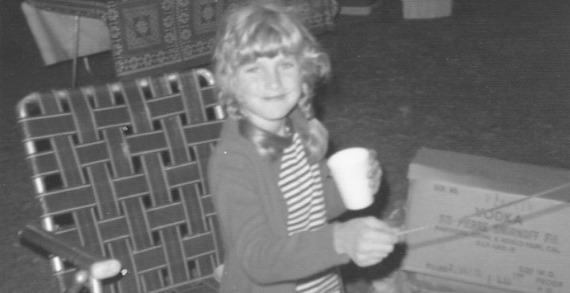"I feel so used!" I cried to his retreating back. The man I'd been dating five years and living with for two years was walking out our front door carrying our coffee table.
He'd already taken most of our artwork, every stick of furniture that was his before we moved in, but I had to put my foot down when he tried to take our clothes dryer because my grandmother had given it to us.
After five years of his infidelity, unreliability, grouchy moodiness and other asshattery, he'd broken up with me. As was our usual cycle, he came back two weeks later and proposed marriage without a ring.
At this point I wanted out of the Dance of Death, which was an addiction as tenacious as any addiction to crack or speed or smack.
I'd tried so many times, but every time he came back apologetic with promises to change and tears in his eyes, I'd mount my fiery steed and lurch into battle to rescue him from the sorrow he'd created for us both. I couldn't stand to see him suffer.
But as I watched that rosewood coffee table -- admittedly his -- march out my door I was angry. Not just angry, I was furious!
But this time it was different. Yes, I'd been angry in the past. Angry with him when I felt he'd let me down or I discovered betrayal with another woman. Angry with myself for constantly taking him back.
But this time I was angry FOR myself.
And, to be even more specific, I was angry FOR the little girl who resided inside of me. The little girl I was abandoning over and over again, the way my mother had abandoned her, because my mom was drowning in her own addiction to men.
This article is not about vilifying my mom. She was abandoned by her own mother (who married three times) again and again. It's cyclical in my family, a generational dysfunction.
But, I mention my mother because my propensity to self-abandon came from survival tactics I used as a child.
As children if we have a parent who drinks or smokes or shoots up or has tumultuous relationships or mental illness, we often step into the breach and parent our own parents in order to survive.
But when we take these childhood coping mechanisms -- hyper-responsibility, rescuing, peace making, denying our own feelings and needs to fulfill other people's feelings and needs -- and bring them into our adult relationships they wreak havoc.
We invariably and unconsciously choose damaged partners with issues similar to our family of origin in order to get it right this time. To heal those psychic childhood wounds.
Unfortunately it becomes a losing battle. And what we lose is ourselves.
What helped me allow my boyfriend to walk out that door (with the coffee table) permanently was a truly righteous anger I had FOR that little girl who'd been abandoned so many times in her life.
I was finally ready, through a lot of prayer, meditation, 12-step recovery and the help of an incredible sponsor, to have this little girl's back. To finally protect and honor her. And the two of us have never looked back.
If you're struggling in a toxic relationship where you find that you make promises to yourself, only to break them once your Asshat wants you back, I'd love to help you the way others helped me.
Click over and book your first session with me today and/or be sure to opt-in to my bi-weekly newsletter.
For today, try these ACTIONABLE TASKS to help you cultivate a righteous anger FOR your inner child and her or his well-being.
1. Find a photograph from your childhood where you were the most sad, lonely and scared. Place it somewhere you can see it every day.
Talk to that child telling her that you are working to become strong enough to parent her and keep her safe. Tell her that you see her, you love her, that she is beautiful and strong and worthy of love.
Exercise compassion for this child by communicating with her every day, the way you would go to the gym to make your body strong and healthy.
2. Begin to develop a relationship with a Higher Power.
This could be God, it could be the Universe, it could be your Higher Self.
Make sure this Higher Power loves you unconditionally. That means your Higher Power doesn't shame you, lose patience with you, judge you. This Higher Power is simply there to support you in your recovery and is so proud you are taking on the arduous, important task of healing yourself.
Communicate with your Higher Power daily. Ask for His/Her support to help you find the way to emotional sobriety. Then listen for answers. They will come unexpectedly, but unmistakably.
3. Find a good 12-step program and start attending regularly.
CODA or Al-Anon are excellent choices for people like us. People pleasing self-abandoners. I know groups can be scary for some people.
Many of us are so ashamed of ourselves that it feels mortifying to identify with other damaged people. But remember, we're only as sick as our secrets. Our secret shame keeps us isolated and incapable of recovery.
And remember, with recovery, it's Progress, not Perfection. We tried to be perfect when we were children, now we know that's a recipe for self-loathing, so be kind and patient with yourself. xo S
